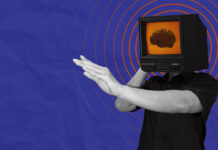A recent article published in the journal Higher Education surveyed students at the University of East London to determine if Adverse Childhood Experiences (ACEs) correlated with increased anxiety. The authors of the study found that both life stressors and ACEs were significantly associated with higher levels of anxiety and lower reported levels of physical and mental health. They reflect that these findings are likely indicative of racism and poverty at work, given the student population at the University of East London.
“Adverse childhood experiences (ACEs) have been repeatedly associated with a wide range of physical and mental health issues. For example, the long-term physical effects of abuse and neglect include higher rates of cancer, strokes, arthritis, diabetes, lung disease, heart attacks, high blood pressure, and bowel disease. The long-term mental health impacts of child abuse and neglect include anxiety, depression, PTSD, eating difficulties, ‘personality disorders,’ dissociation, sexual difficulties, substance abuse, psychosis, and mood swings,” the authors write.
“In a general population study in the USA, those reporting at least one ACE experienced significantly lower levels of life satisfaction than those who did not, after controlling for demographic variables.”
 Adverse Childhood Experiences (ACEs) have been found to correlate strongly with a variety of mental health conditions, from chronic illness to depression to intergenerational forms of trauma. In addition, a host of other conditions have also been linked to ACEs, such as schizophrenia, bipolar disorder, and more.
Adverse Childhood Experiences (ACEs) have been found to correlate strongly with a variety of mental health conditions, from chronic illness to depression to intergenerational forms of trauma. In addition, a host of other conditions have also been linked to ACEs, such as schizophrenia, bipolar disorder, and more.
The current study surveyed students at the University of East London to determine whether ACEs correlated with student anxiety, quality of life, and general physical and mental health. The authors, two professors at the university and one from Ulster University note that the University of East London is located in one of England’s most ethnically diverse districts and ranks second highest in poverty.
The authors surveyed 858 first-year (level 4) students who were at least 18 years old. The included measures focused on Generalized Anxiety Disorder (GAD-7), self-reported quality of life, positive physical health, and positive mental health. The survey was developed for this particular project, a university initiative called Beyond adversity. 69.3% of participants were women. In addition, 30% were black, 28.9% white, 22% Asian, and 19.2% marked as either “other” or “unknown.” The average age was 27.
Many of the participants lived in areas with “higher-than-average” levels of deprivation.
The authors used descriptive statistics and bivariate correlations as well as a multivariate multiple regression model for the analysis of the data.
They found that, on average, participants reported 3.7 stressors and 3.1 ACEs, with these being significantly correlated. 37.1% of participants met the cut-off score for the generalized anxiety measure, indicating “clinically meaningful levels of anxiety.”
Higher reported levels of life stressors were associated with higher levels of anxiety and lower levels of quality of life and mental health. Meanwhile, higher levels of reported ACEs were associated with higher levels of anxiety, lower levels of quality of life, as well as lower physical and mental health.
Female and black students reported higher levels of adversity and discrimination compared to other groups, including sexual abuse. Female participants also scored higher on the generalized anxiety measure. The authors note that these findings likely indicate that racism, sexism, and the intersection of the two are important factors in the results.
Compared to the general population, student participants in the study scored higher than average for ACEs, particularly “sexual abuse, verbal/emotional abuse and living with domestic violence in childhood.” They note that these findings are consistent with previous research showing a significant correlation between ACEs and poverty and deprived geographical areas.
Compared to studies of university students in Australia and Ireland, the current participants scored higher on the generalized anxiety measurement. The authors explain that the discrepancy may have to do with poverty levels.
The authors conclude with a discussion of how these findings will translate to changes at the university:
“Prior to this study, there was less understanding of the prevalence of adverse childhood experiences within the UEL student population and of the relationship between adverse childhood experiences, student’s current levels of anxiety, and self-reported quality of life. Active dissemination and discussion of the findings with students and staff are already increasing the visibility of these issues within the institution. These analyses informed a one-day staff training on trauma-informed care and educational practices, attended by 200 staff members, as well as structured discussions with staff and students in 2021.”
****
Davies, E., Read, J., & Shevlin, M. (January 01, 2021). The impact of adverse childhood experiences and recent life events on university students’ anxiety and quality of life. Higher Education, 1-14. (Link)















How do we know it is not just THE WORLD causing increasing anxiety?
How do we know it is not just SCHOOL causing increased anxiety?
School used to be strict. Are statistics comparing childhood anxiety currently to the possible anxiety seen in schools in the past? Were old schools worse or better? Was the world in the past more likely to cause anxiety that may have been attributed by modern specialists to childhood or was the world easier back then? Is the world worse now? Is it that since we have a vocabulary to describe unhappiness, that now has hundreds of therapy founded words, a virtual new language, but these words emerged from child development studies, such that the ONLY way we now describe any of our adult unhappiness is in using the childhood science language, an unhelpful way of defining grown up misery from encountering struggles in the world.
Childhood was once grim for many a hundred years ago and yet mental illness is on the rise.
Children were routinely beaten as part of character forming. Barely a mention of trauma back then.
Is that because they were pent up with trauma all their miseable lives or was it because people are indeed a bit better at recovery than they are currently being led to believe?
If everything wrong with you is due to your childhood then this goes well with the myth of the tragic hero and the myth of the reborn or born-again fixed person.
What is wrong with loving the flawed moody person you are….and loving your less than perfect idiotic affable parents?
An industry of recovery cannot be formed if there is no trauma to meddle in.
If your childhood is not the cause of you unhappiness then is it possible someone has a vested interest in stopping you from thinking that….
A. You are ok.
B. If you are not, then have you considered that THIS CLIMATE CHANGE WORLD would make ANYONE unbalanced REGARDLESS of whether you had a great mom or dad or not.
In whose interest is it that you avoid believing in the myth of the loving planet?
Report comment
Thank you for speaking about the most taboo subject of all – at least to the psychologists and psychiatrists, since they can’t bill to help child abuse survivors – child abuse, Micah. Although, given the fact that over 80% of psychiatry’s stigmatized “dangerous, evil” clients, are actually innocent child abuse survivors:
https://www.madinamerica.com/2016/04/heal-for-life/
And covering up child abuse and rape has been the primary actual function of their psychologic and religious “partners” for over a century. And this was called the “dirty little secret of the two original educated professions” to me, by some ethical pastors.
https://www.indybay.org/newsitems/2019/01/23/18820633.php?fbclid=IwAR2-cgZPcEvbz7yFqMuUwneIuaqGleGiOzackY4N2sPeVXolwmEga5iKxdo
And some of the ethical within my childhood religion’s synod offices, are rightfully questioning their “culture war,” against the members of their own religion – and their medical / religious systemic child abuse covering up “partnership,” against their own religion’s ethical American banking families.
https://books.google.com/books?id=xI01AlxH1uAC&printsec=frontcover&source=gbs_ge_summary_r&cad=0#v=onepage&q&f=false
And all this child abuse covering up is by DSM design.
https://www.psychologytoday.com/us/blog/your-child-does-not-have-bipolar-disorder/201402/dsm-5-and-child-neglect-and-abuse-1
Plus, the DSM “bible” thumpers’ systemic pedophile aiding, abetting, and empowering services have left us all now living in a “pedophile empire,” with child sex trafficking and pedophilia running amok.
https://www.amazon.com/Pedophilia-Empire-Chapter-Introduction-Disorder-ebook/dp/B0773QHGPT
https://medicalkidnap.com/2018/08/05/america-1-in-child-sex-trafficking-and-pedophilia-cps-and-foster-care-are-the-pipelines/
Well, a critical psychiatry website does actually need to discuss all these systemic child abuse and rape covering crimes of the psychologists, psychiatrists, and other “mental health” and social workers.
I just want to make sure the psychologists stop claiming child abuse – or concerns of such – causes “life long incurable genetic diseases.” Since, as the mother of a child abuse survivor – who got my child away from the child molesters relatively quickly, and was able to keep my healing child away from the looney child rape covering up psychiatrists and social workers – whose child largely healed.
My child graduated from high school as the valedictorian, and from university Phi Beta Kappa. I will say children can heal from child abuse with love, and if their loving moms get them away from the wealthy, what I eventually learned was a “cocaine dealing,” satanic child molester, quickly.
So I don’t want to see the psychologists’ and psychiatrists’ – staggering in scope – systemic child abuse covering up system, claim that child abuse causes their “invalid” DSM “mental illnesses.”
http://psychrights.org/2013/130429NIMHTransformingDiagnosis.htm
When the problem actually is that the paternalistic, “invalid” DSM “bible” is a systemic child abuse covering up religion … that should be ended.
Report comment
And, pardon me, since I’ve already mentioned this too many times on this website, the DSM protocol is also an iatrogenic illness creating system.
The ADHD drugs and antidepressants create the “bipolar” symptoms.
https://www.alternet.org/2010/04/are_prozac_and_other_psychiatric_drug
s_causing_the_astonishing_rise_of_mental_illness_in_america/
The antidepressants and antipsychotics can create the positive symptoms of “schizophrenia,” like “psychosis,” via anticholinergic toxidrome.
https://en.wikipedia.org/wiki/Toxidrome
And the antipsychotics / neuroleptics can create the negative symptoms of “schizophrenia,” via neuroleptic induced deficit syndrome.
https://en.wikipedia.org/wiki/Neuroleptic-induced_deficit_syndrome
So the two “most serious” DSM “mental illnesses” are actually “mental illnesses,” created with the psychiatric drugs.
Report comment
I agree with Someone Else in that the DSM actually creates the illnesses through its alleged symptoms, and then the use of the drugs, therapies and other treatments like ECT that should be outlawed. The DSM is the psychiatrist’s bible of self-fulfulling prophecy. It may well be one of the most deadliest books on the planet. It is a set-up to force-feed the drugs and the therapies and treatments onto vulnerable people. If you have a diagnosis, you can thank this far-fetched dystopian fantasy evil. If you accept that diagnosis as fact for you, you must realize that tragically you have knowingly or unknowingly bought into this evil. Of all the conditions one can say is wrong with you, especially including conditions of the brain which affects the whole body, to label yourself or allow yourself to be lablelled with an alleged mental illness is the worst thing you can do to yourself. If you are in this tragic predicament, you must confront yourself and ask yourself, “do you really love and like yourself?” and “do you really value life yours and others?” Don’t fall for this lie. And of course, college students around this type of very evil psych academia will very easily fall for it because they are so precious and vulnerable.—Our literal future…Thank you.
Report comment
What right does anyone else have to claim expertize on a gruelling illness they do not have?
Report comment
More stunning research! This is somewhere on the level of “serious injury to the knees is associated with increased knee pain later in life!” Seriously, is anyone surprised that having major frightening experiences earlier in life might make it more likely that one is more easily frightened? “People who have been major car wrecks are shown to be more worried about getting in car wrecks.” And they get PAID to do this research???
Report comment